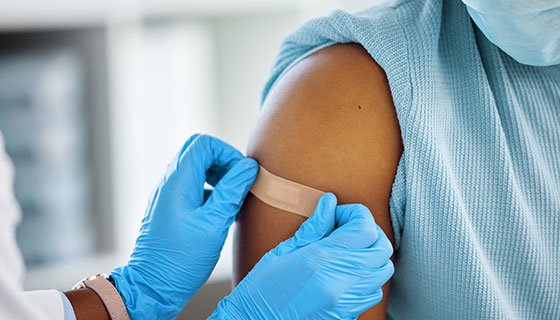
Traveling the world is an enriching experience, offering exposure to diverse cultures, breathtaking landscapes, and unforgettable memories. However, exploring new places also means encountering unfamiliar health environments, potential illnesses, and different healthcare systems. Proper health preparation can protect you from serious issues abroad and ensure you enjoy your trip with peace of mind.
From routine vaccines to destination-specific medications and understanding local health regulations, every detail matters. This comprehensive guide covers everything you need to do before departure and during your trip to stay healthy, protected, and compliant with the rules of your destination.
1. Start With a Pre-Travel Health Consultation
Before any international travel—especially to countries with different health risks—you should consult a healthcare provider or travel clinic. Ideally, this should happen at least 4–6 weeks before your departure.
Why It’s Important:
- You may need vaccines that require multiple doses spaced weeks apart.
- You’ll receive personalized recommendations based on your destination, health status, and planned activities.
- It’s a chance to refill prescriptions and receive documentation for medications and vaccinations.
Bring your travel itinerary, medical history, and immunization records to your appointment. This allows the healthcare provider to identify necessary vaccines and prescribe preventive medications.
2. Vaccinations: What You May Need
Vaccinations are one of the most important preventive tools in travel health. Some are required for entry into certain countries, while others are highly recommended based on health risks in the region.
a. Routine Vaccinations
Make sure you are up to date on standard vaccines, including:
- MMR (Measles, Mumps, Rubella)
- DTP (Diphtheria, Tetanus, Pertussis)
- Polio
- Influenza
- COVID-19 (as required)
b. Recommended Travel Vaccines
Depending on your destination and activities, the following may be advised:
- Hepatitis A and B – Common in many developing regions.
- Typhoid – Especially important if traveling to areas with poor sanitation or eating street food.
- Yellow Fever – Required for entry into some countries in Africa and South America.
- Rabies – Recommended for travelers engaging in outdoor activities or visiting remote areas.
- Japanese Encephalitis – For long stays or rural travel in parts of Asia.
- Meningococcal Disease – Required for pilgrimage (Hajj) or recommended in certain regions.
c. Required Vaccination Certificates
Some countries require proof of specific vaccines (e.g., Yellow Fever). Always carry a printed and digital copy of your International Certificate of Vaccination (also known as the Yellow Card from the WHO).
3. Pack a Travel Medical Kit
Your personal travel medical kit is your first line of defense against minor illnesses and injuries. Customize it according to your destination, activities, and medical history.
Basic Items:
- Prescription Medications – Pack enough for the entire trip, plus extra in case of delays.
- Pain Relievers – Ibuprofen or paracetamol.
- Allergy Medications – Antihistamines for reactions to food, insect bites, or plants.
- Antidiarrheal – Loperamide and/or oral rehydration salts.
- Motion Sickness Tablets
- Cold/Flu Relief – Lozenges, nasal sprays, or decongestants.
- Antibacterial Ointment and Bandages
- Thermometer
- Tweezers, scissors, and safety pins
- Insect Repellent (with DEET or Picaridin)
- Sunscreen and Lip Balm with SPF
- Hand Sanitizer and Alcohol Wipes
Optional Additions:
- Altitude Sickness Pills if visiting high elevations.
- Anti-malarial Medication if traveling to malaria-prone areas (consult your doctor).
- Water Purification Tablets or portable filters for remote or rural travel.
Keep your kit in your carry-on luggage to ensure it’s accessible at all times, especially during long-haul flights or layovers.
4. Manage Prescription Medications Wisely
Travelers who rely on regular medication must take extra care in packing and planning.
Tips for Managing Medication:
- Bring Original Packaging – With your name, dosage instructions, and pharmacy label.
- Carry a Doctor’s Note – Especially for controlled substances (e.g., narcotics, ADHD medication).
- Check Local Regulations – Some medications legal at home may be banned in your destination.
- For example, codeine is prohibited in some Middle Eastern countries.
- Japan has strict rules on stimulants and certain cold medications.
Visit embassy websites or use resources like the International Narcotics Control Board (INCB) for information on what’s allowed.
Don’t:
- Don’t pack medicine in checked luggage—it may be lost, delayed, or exposed to extreme temperatures.
- Don’t bring medicine in loose pill organizers without labels—this may raise suspicion at customs.
5. Understand Local Health Rules and Expectations
Health regulations vary widely from country to country. Staying informed can help you avoid fines, delays, or health risks.
a. COVID-19 Regulations
Though many restrictions have eased, some countries still require:
- Proof of vaccination
- Negative test results
- Quarantine on arrival
Always check official government travel advisories before departure.
b. Health Declarations and Arrival Forms
Some destinations require travelers to fill out health declaration forms or digital health passes. These may include questions about symptoms, recent illnesses, or travel history.
c. Quarantine and Isolation Laws
Know what happens if you test positive for a communicable disease while abroad. Some places mandate hotel or hospital isolation at the traveler’s expense.
6. Food and Water Safety
Food- and water-borne illnesses are among the most common problems for travelers.
Avoid:
- Tap water (unless verified safe)
- Ice cubes made from unfiltered water
- Raw or undercooked meat and seafood
- Unpeeled fruit and vegetables in questionable environments
- Food from street vendors with poor hygiene
Follow:
- Eat only cooked and hot food
- Drink bottled, boiled, or filtered water
- Use a reusable filtered water bottle
- Wash hands frequently or use hand sanitizer
Common Illnesses to Watch For:
- Traveler’s Diarrhea
- Hepatitis A
- Typhoid
- Giardia
- Cholera (in rare outbreaks)
Always pack oral rehydration salts (ORS) in case of dehydration due to diarrhea or heat.
7. Stay Safe From Insects and Vector-Borne Diseases
Diseases like malaria, dengue fever, Zika virus, and chikungunya are transmitted by mosquitoes and other insects.
Prevention Tips:
- Use insect repellent on exposed skin.
- Wear long sleeves and pants, especially at dawn and dusk.
- Sleep under mosquito nets when necessary.
- Stay in air-conditioned or screened accommodations.
- Take antimalarial pills if recommended for your destination.
Consult your healthcare provider to determine if malaria prophylaxis is necessary for your trip.
8. Know What to Do in a Medical Emergency
Even with the best preparation, emergencies can happen. Be ready to respond calmly and quickly.
Key Actions:
- Know the local emergency number (911 equivalent varies by country).
- Identify nearby hospitals or clinics before arriving.
- Contact your travel insurance provider immediately if medical assistance is needed.
- Keep your insurance card and policy number on you at all times.
Use travel apps or services like IAMAT, GeoBlue, or Air Doctor to locate English-speaking medical professionals abroad.
9. Maintain Healthy Travel Habits
It’s easy to neglect your health while in vacation mode, but small habits can protect your immune system and keep you energized.
Healthy Habits to Practice:
- Stay Hydrated – Especially in hot climates or high altitudes.
- Get Adequate Sleep – Jet lag, noise, or unfamiliar beds can impact rest—bring earplugs and a sleep mask.
- Eat Balanced Meals – Don’t rely only on carbs or processed foods.
- Stretch or Walk Regularly – Avoid blood clots on long flights and keep circulation moving.
- Avoid Overexertion – Especially at high altitudes or in hot, humid environments.
If you’re traveling with kids or elderly family members, remember that they may be more vulnerable to dehydration, food poisoning, or sunstroke—so plan accordingly.
10. Don’t Forget Mental Health
Mental well-being is just as important as physical health, particularly for long-term travel or solo trips.
Tips for Mental Wellness:
- Stay connected with loved ones back home.
- Practice mindfulness or breathing exercises when stressed.
- Avoid excessive alcohol or caffeine, which can impact mood and sleep.
- Take breaks from screen time and immerse in your surroundings.
- Bring comfort items (journal, music, books) to relax.
Final Thoughts: Prioritize Your Health, Enjoy Your Trip
Travel opens our eyes, feeds our curiosity, and challenges our perspective—but without proper health preparation, it can also leave us vulnerable. By planning ahead with vaccinations, packing smart with essential medicines, and understanding local health rules, you empower yourself to travel with greater freedom and confidence.
Being proactive about your health isn’t just about avoiding illness—it’s about making the most of every moment, from the comfort of a local café to the summit of a scenic mountain. So don’t take shortcuts when it comes to health prep—invest in it, and you’ll travel safer, smarter, and stronger.
Bon voyage—and stay healthy!



